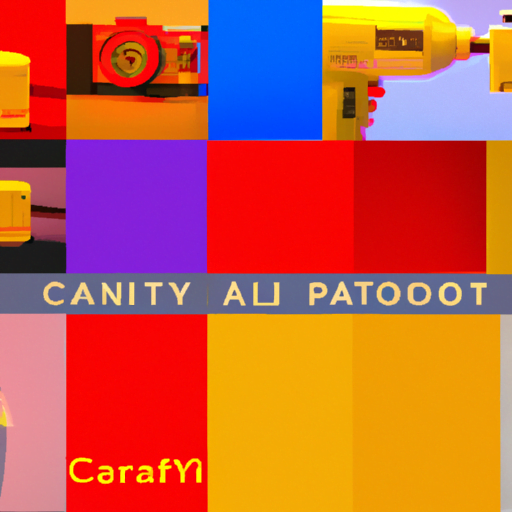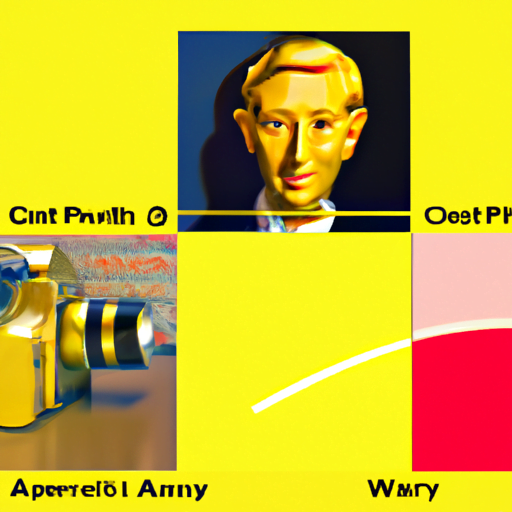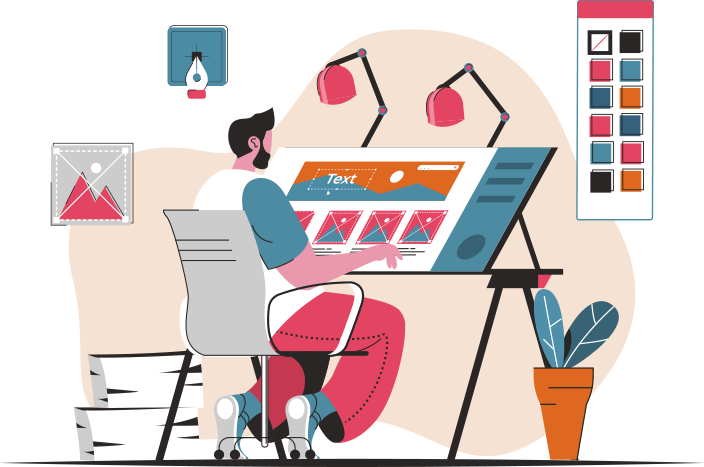
-
Table of Contents
Crafting Brand Identity with AI-Generated Elements

In today’s digital age, crafting a strong brand identity is crucial for businesses to stand out in a crowded marketplace. A brand’s identity encompasses its values, personality, and visual elements that help create a lasting impression on consumers. With the advancements in artificial intelligence (AI), businesses now have access to powerful tools that can assist in the creation of brand elements. This article explores how AI-generated elements can be used to craft a compelling brand identity.
The Power of AI in Branding
Artificial intelligence has revolutionized various industries, and branding is no exception. AI-powered tools can analyze vast amounts of data, identify patterns, and generate creative solutions. When it comes to branding, AI can assist in several ways:
- Logo Design: AI algorithms can analyze existing logos, industry trends, and consumer preferences to generate unique and visually appealing logo designs.
- Color Palette: AI can analyze the psychology of colors and help businesses select a color palette that aligns with their brand values and resonates with their target audience.
- Typography: AI can generate custom fonts or suggest font pairings that enhance the brand’s visual identity.
- Brand Voice: AI-powered natural language processing can analyze a brand’s communication style and help create consistent and engaging brand messaging.
Case Studies: Successful Implementation of AI in Branding
Several companies have already embraced AI-generated elements to enhance their brand identity. Let’s explore a few case studies:
1. Airbnb
Airbnb, the popular online marketplace for vacation rentals, used AI to redesign its logo. The company’s previous logo faced criticism for its complexity and lack of clarity. Airbnb leveraged AI algorithms to analyze thousands of existing logos and user feedback to create a simplified and recognizable logo. The new logo, known as the “Bélo,” represents belonging and has become an iconic symbol of the brand.
2. Coca-Cola
Coca-Cola, one of the world’s most recognizable brands, utilized AI to create personalized packaging. The “Share a Coke” campaign involved printing individual names on Coca-Cola bottles and cans. AI algorithms were used to generate various name combinations and ensure that popular names were included. This personalized approach not only increased consumer engagement but also strengthened the emotional connection between the brand and its customers.
The Benefits of AI-Generated Brand Elements
Integrating AI-generated elements into brand identity offers several advantages:
- Efficiency: AI algorithms can generate multiple design options in a fraction of the time it would take for human designers. This allows businesses to iterate and experiment with different visual elements more quickly.
- Consistency: AI ensures consistency across different brand touchpoints by generating elements that align with the brand’s established guidelines. This consistency helps build brand recognition and trust.
- Personalization: AI can analyze consumer data and preferences to create personalized brand experiences. This personalization enhances customer engagement and loyalty.
- Cost-Effectiveness: AI-generated elements can significantly reduce design costs, especially for small businesses that may not have the resources to hire professional designers.
Potential Challenges and Ethical Considerations
While AI-generated brand elements offer numerous benefits, there are also potential challenges and ethical considerations to address:
- Lack of Human Touch: AI-generated designs may lack the human touch and creativity that can be achieved by human designers. It is essential to strike a balance between AI-generated elements and human creativity to ensure a unique and authentic brand identity.
- Unintended Biases: AI algorithms are trained on existing data, which may contain biases. It is crucial to ensure that AI-generated elements do not perpetuate stereotypes or exclude certain groups of people.
- Intellectual Property: AI-generated designs raise questions about intellectual property rights. Who owns the rights to AI-generated brand elements? Clear guidelines and legal frameworks need to be established to address this issue.
Conclusion
AI-generated elements have the potential to revolutionize the way businesses craft their brand identity. By leveraging AI algorithms, companies can create visually appealing logos, select appropriate color palettes, and develop consistent brand messaging. However, it is important to strike a balance between AI-generated elements and human creativity to ensure a unique and authentic brand identity. Additionally, ethical considerations such as unintended biases and intellectual property rights need to be addressed. As AI continues to advance, businesses that embrace AI-generated elements in their brand identity will have a competitive edge in the ever-evolving marketplace.
